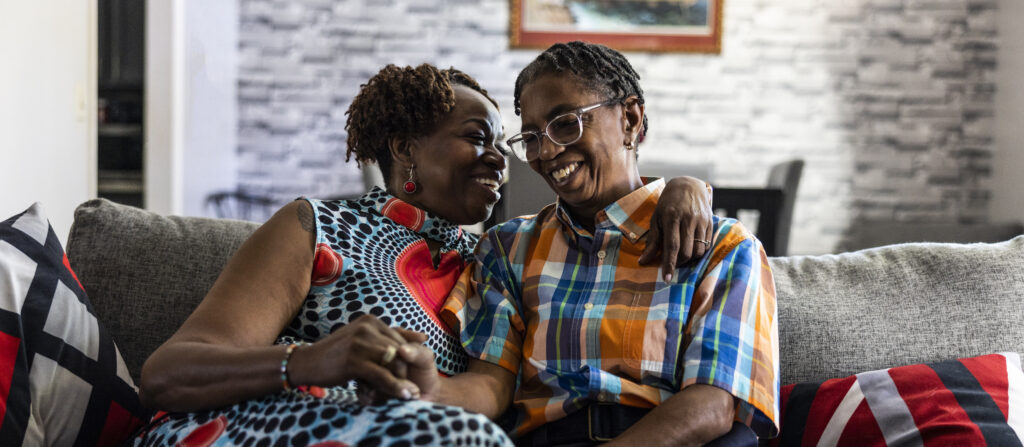Health Tips for Pride Month
Members of the LGBTQ+ community often face unique challenges when it comes to managing their health and wellness and finding welcoming healthcare providers. In honor of Pride Month, here are some tools to help you take good care of yourself and access any support you need.
Finding an LGBTQ+ Affirming PCP
Navigating the ins and outs of healthcare can be a challenge, especially for LGBTQ+ individuals who may have faced stigma in the past. If you’re not sure where to start, your primary care provider (PCP) should be your go-to resource and can refer you to any relevant specialists.
It’s important to have a PCP. Your PCP is often the one performing your annual physical, reminding you about preventive cancer screenings and making sure you get your annual flu shot, so find someone you have a good relationship with.
If you don’t have a PCP you feel comfortable talking to, tools like the LGBTQ+ Healthcare Directory and OutCare offer free, searchable databases of LGBTQ+ friendly medical professionals and healthcare providers. You can begin by making an appointment with one of the listed providers who accepts your health plan.
Mental Health Support
Due to social stressors like prejudice and discrimination, members of the LGBTQ+ community are more likely to suffer from depression and anxiety. Mental health challenges can be especially severe for those who remain in the closet or who don’t have adequate support from friends and family.
If you’re experiencing depression or anxiety, your PCP can be a good first resource to discuss your emotional health and help you find an affirming behavioral health specialist. You can also access online resources such as The Trevor Project or the LGBT National Help Center, which offer educational information, national help hotlines and crisis support.
For some people, mental health challenges can lead to increased use of tobacco, drugs and alcohol. If your drug or alcohol use is interfering with your health, work or relationships, it’s important to seek help. You can get started by talking to a healthcare provider about ways to better cope with stress or asking your PCP to recommend local resources for addiction treatment and recovery.

Taking Care of Your Sexual Health
As some members of the LGBTQ+ community may experience higher rates of HIV and other sexually transmitted infections (STIs), preventive measures and frequent testing are especially important. While not all of the following issues will apply to everyone, it’s helpful to be aware of these common risks and discuss them with your healthcare provider.
STI Screenings
To protect your health and the health of your partners, make sure you get screened regularly for STIs. Most sexually active people should get tested at least once a year, but those with a higher number of partners may need to get tested every three to six months.
PrEP and PEP
When taken as prescribed, pre-exposure prophylaxis (PrEP) reduces your risk of getting HIV from sex by about 99%. (However, it’s important to note that PrEP does not protect against other STIs.) If you are not taking PrEP and are exposed to HIV, you can take post-exposure prophylaxis (PEP) within 72 hours to drastically reduce your chances of getting HIV.
Self-care for Pride Month
Pride Month is a time of joyful celebration, but it can also bring up challenging emotions and memories. If you find yourself needing a moment of calm, try these self-care tips to improve your mood and prioritize your emotional health.
Volunteer in Your Community
Acts of kindness like volunteering have been shown to boost your self-esteem, empathy and compassion, and even improve your health. Pride Month is a great time to volunteer for a cause you care about, such as a local outreach group or youth community center.
Take a Social Media Break
Social media can be a great way to connect with others and stay informed, but it can also keep you from enjoying life as you’re living it. If you’re feeling overwhelmed by what you’re seeing on social media, protect your peace by setting limits on your screen time or unplugging entirely.
Practice Mindfulness
Mindfulness means being aware of your surroundings, as well as your own feelings and sensations, without judgement. Practicing mindfulness helps reduce stress and keeps you grounded in the present moment. It can be as simple as noticing what you can see, feel, hear, smell and taste around you, or listening to a guided meditation on an app like Headspace or Calm.